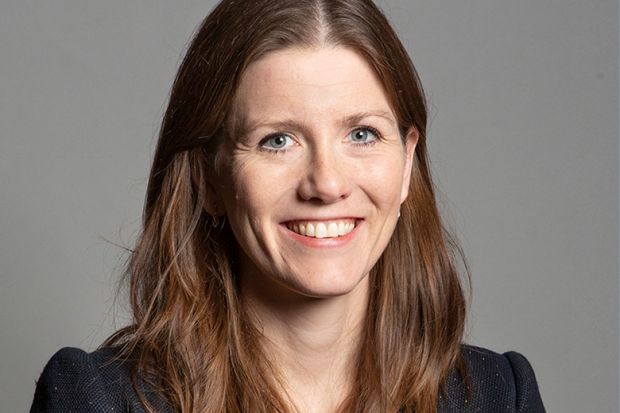Michelle Donelan has been named as universities minister in the UK government, as Boris Johnson split the brief from science for the first time since 2010.
The Chippenham MP was named as minister of state in the Department of Education in the prime minister’s post-Brexit reshuffle. Although departmental responsibilities were yet to be officially confirmed, Times Higher Education understands that she will take on responsibility for universities.
Her appointment follows the sacking of Chris Skidmore, who served as universities and science minister across the DfE and the Department for Business, Energy and Industrial Strategy. Ms Donelan’s appointment within the DfE was seen as indicating that a separate science minister will be appointed, and Ms Donelan may also take on responsibility for further education.
Gavin Williamson, the education secretary, survived the reshuffle, while Andrea Leadsom, the business secretary, was replaced by Alok Sharma, formerly the international development secretary.
Ms Donelan becomes the fifth universities minister in little over two years, following two spells each for Mr Skidmore and Jo Johnson, and Sam Gyimah’s tenure.
Her predecessors stretching back as far as David Willetts, who was appointed in 2010, had also held responsibility for science. But the split in responsibilities may reflect the increased importance being attached to research and innovation post-Brexit, and the influence of Dominic Cummings, Mr Johnson’s most senior adviser.
Ms Donelan also becomes the first universities minister since David Lammy – in post between 2007 and 2010 – who did not attend either of the universities of Oxford and Cambridge.
She studied history and politics at the University of York before working in marketing and being elected MP for Chippenham in 2015.
Ms Donelan, who supported remain in the European Union referendum, has served on the Education Select Committee, as a government whip, and also served as minister for children and families during Kemi Badenoch’s maternity leave.
Her previous parliamentary interventions on higher education matters have included describing vice-chancellors’ salaries as “outrageous” and claiming that universities’ use of unconditional offers was “closing doors” for young people.
In her new role, Ms Donelan’s priorities will include responding to the Augar review of post-18 education, which recommended cutting tuition fees in England, and deciding on the future shape of the teaching excellence framework.
She will play a key role in formulating the action against “low-quality” university courses promised in the Conservative manifesto, which also pledged to “strengthen academic freedom and free speech” on campuses.




